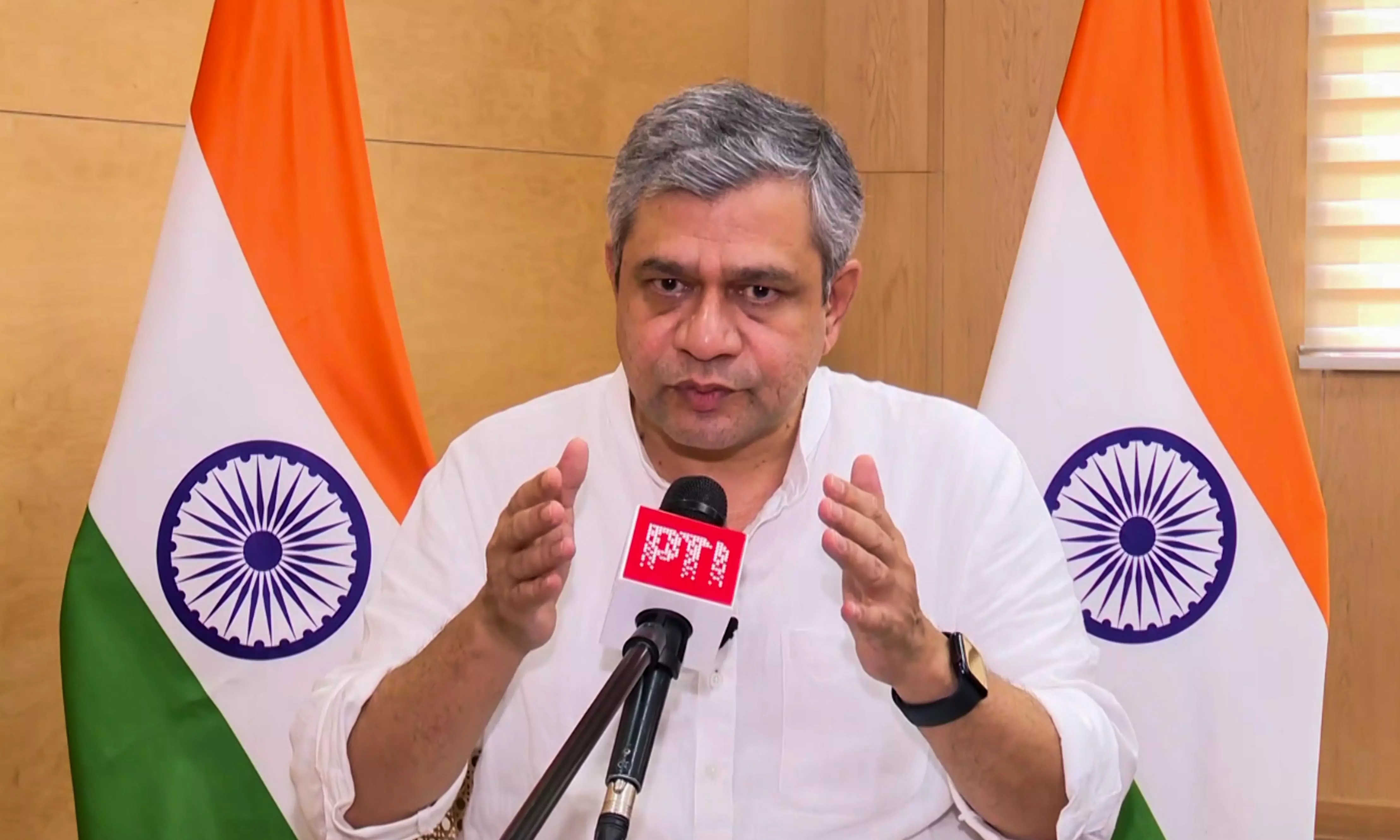
Top priority is train safety-related activities including Kavach installation: Railway Minister
Ashwini Vaishnaw says massive chunk of Budget allocation will be spent on Kavach, replacing old tracks, improving signalling system, and building infrastructure

A capital investment (capex) of ₹2,62,200 crore has been proposed for the Indian Railways in the Union Budget 2024-25, according to Railway Minister Ashwini Vaishnaw. The allocation reflects the government’s thrust on safety, he said.
It may be noted that a series of derailments and devastating train accidents have taken place over the past year, including the 2023 Coromandel Express accident in which 350 people were killed.
Finance Minister Nirmala Sitharaman did not make any specific announcement for the Indian Railways in her Budget 2024 speech on Tuesday (July 23). The Budget document released later mentioned the allocation for the current fiscal.
Installing Kavach govt’s priority: Railway minister
Addressing a press conference after Finance Minister Nirmala Sitharaman’s Budget speech on Tuesday (July 23), Vaishnaw told reporters that while a massive chunk of the allocation will be spent on replacing old tracks, improving the signalling system, and constructing flyovers and underpasses, his top priority will be the train safety-related activities including the installation of Kavach, an automatic train-protection system, he added.
Kavach is an anti-collision protection system developed by the Research Design and Standards Organisation (RDSO).
“A big chunk of this allocation – ₹1,08,795 crore – is meant for safety-related activities, such as replacement of old tracks with new ones, improvement in the signalling system and construction of flyovers and underpasses, and to install Kavach, among others," Vaishnaw said.
He said upgraded version of Kavach 4.0 has recently got approval from RDSO and with this approval, its installation will start happening at a rapid pace.
Vaishnaw said optical fibre cable, one of the components of Kavach, has been laid over 4,275 km and other components, such as telecom towers, the track RFID device, station Kavach and loco Kavach, are also being installed at a rapid pace.
Allocations for major corridors
Additional funds have been allocated in the Budget for industrial development along strategic notes while key initiatives have been proposed to improve infrastructure for industrial clusters along major corridors including the Hyderabad-Bengaluru Industrial Corridor, the Visakhapatnam-Chennai Industrial Corridor and the Amritsar-Kolkata Industrial Corridor.
The Centre under the PM Gati Shakti Mission has also identified three economic railway corridors – energy, mineral, and cement; port connectivity and; high traffic density corridors – to help in multi-modal connectivity, reduce cost of logistics and improve passenger safety.
Key achievements
The Gross Budgetary Support for Railways in the 2024-25 fiscal is ₹2,52,200 crore. The sector has a goal of reaching 3,000 MT by 2030.
Vaishnaw, while thanking Prime Minister Narendra Modi and Finance Minister Nirmala Sitharaman for the allocation, pointed out the key achievements of the sector over the years.
“Around 2014, the budgetary allocation for the railways was used to be only about ₹35,000 crore. Today, it has reached a new level of ₹2.62 lakh crore. This budget takes forward the hard work and focused approach of Prime Minister Narendra Modi's last 10 years of rule," he said.
He said in the last 10 years, the Indian Railways has commissioned 31,180 km of new tracks, while electrification has been done along 41,655 Route Kilometers in the same period.
"Before 2014, in 60 years, only 20,000 km of rail route was electrified but in the last 10 years, 40,000 km of rail route has been electrified. Similarly, in 2014, 4 km per day new track construction used to happen on an average, but in the last financial year, the railways constructed tracks on an average for 14.5 km per day, which means in the entire financial year, it constructed 5,300 km new tracks," Vaishnaw added.
Expansion to continue
The Railway Minister said initiatives taken in the last 10 years, such as expansion in the railway infrastructure, removal of bottlenecks, a boost in the manufacturing of engines and coaches and introducing new technology, which were taken in the last 10 years, will continue.
"The railways caters to low and middle-income group passengers and keeping this in mind, it maintains the ratio of general and air-conditioned coaches, which is one-third air-conditioned coaches and two-thirds general coaches of the total number of coaches in a train set," he said.
More general coaches
Vaishnaw emphasised that due to an increase in the demand for general coaches, a decision has been taken in the ongoing financial year to manufacture 2,500 extra general coaches.
"In another decision, 10,000 more general coaches will be manufactured to cater to the rising demand. The budget covers both the decisions," he added.
"So far as employment is concerned, in 10 years of the UPA rule, 4.11 lakh jobs were offered in the railways, whereas in 10 years of the Modi regime, five lakh jobs were offered, which is 20 per cent more than the UPA rule," Vaishnaw said.

